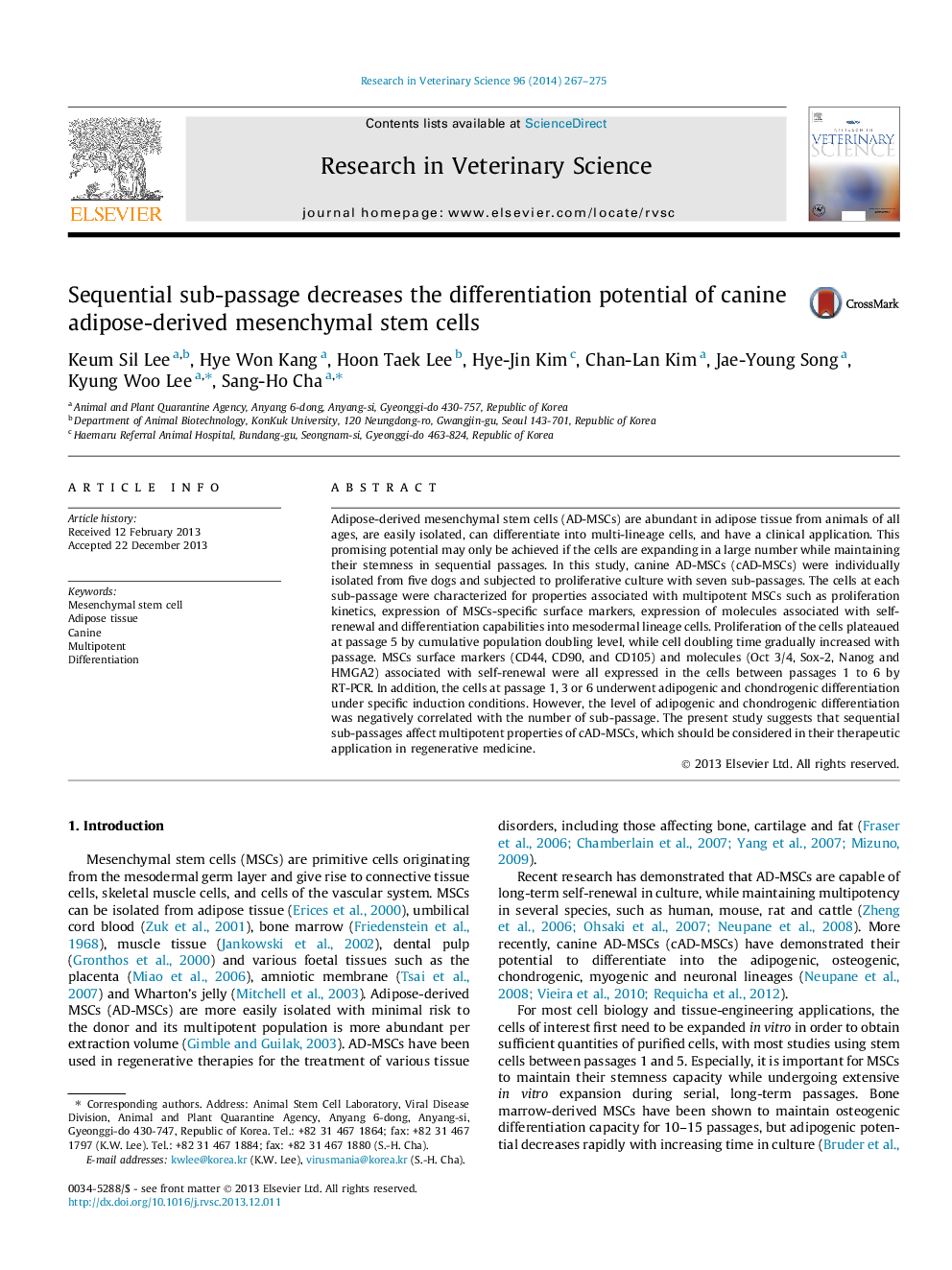| Article ID | Journal | Published Year | Pages | File Type |
|---|---|---|---|---|
| 5794795 | Research in Veterinary Science | 2014 | 9 Pages |
Adipose-derived mesenchymal stem cells (AD-MSCs) are abundant in adipose tissue from animals of all ages, are easily isolated, can differentiate into multi-lineage cells, and have a clinical application. This promising potential may only be achieved if the cells are expanding in a large number while maintaining their stemness in sequential passages. In this study, canine AD-MSCs (cAD-MSCs) were individually isolated from five dogs and subjected to proliferative culture with seven sub-passages. The cells at each sub-passage were characterized for properties associated with multipotent MSCs such as proliferation kinetics, expression of MSCs-specific surface markers, expression of molecules associated with self-renewal and differentiation capabilities into mesodermal lineage cells. Proliferation of the cells plateaued at passage 5 by cumulative population doubling level, while cell doubling time gradually increased with passage. MSCs surface markers (CD44, CD90, and CD105) and molecules (Oct 3/4, Sox-2, Nanog and HMGA2) associated with self-renewal were all expressed in the cells between passages 1 to 6 by RT-PCR. In addition, the cells at passage 1, 3 or 6 underwent adipogenic and chondrogenic differentiation under specific induction conditions. However, the level of adipogenic and chondrogenic differentiation was negatively correlated with the number of sub-passage. The present study suggests that sequential sub-passages affect multipotent properties of cAD-MSCs, which should be considered in their therapeutic application in regenerative medicine.
